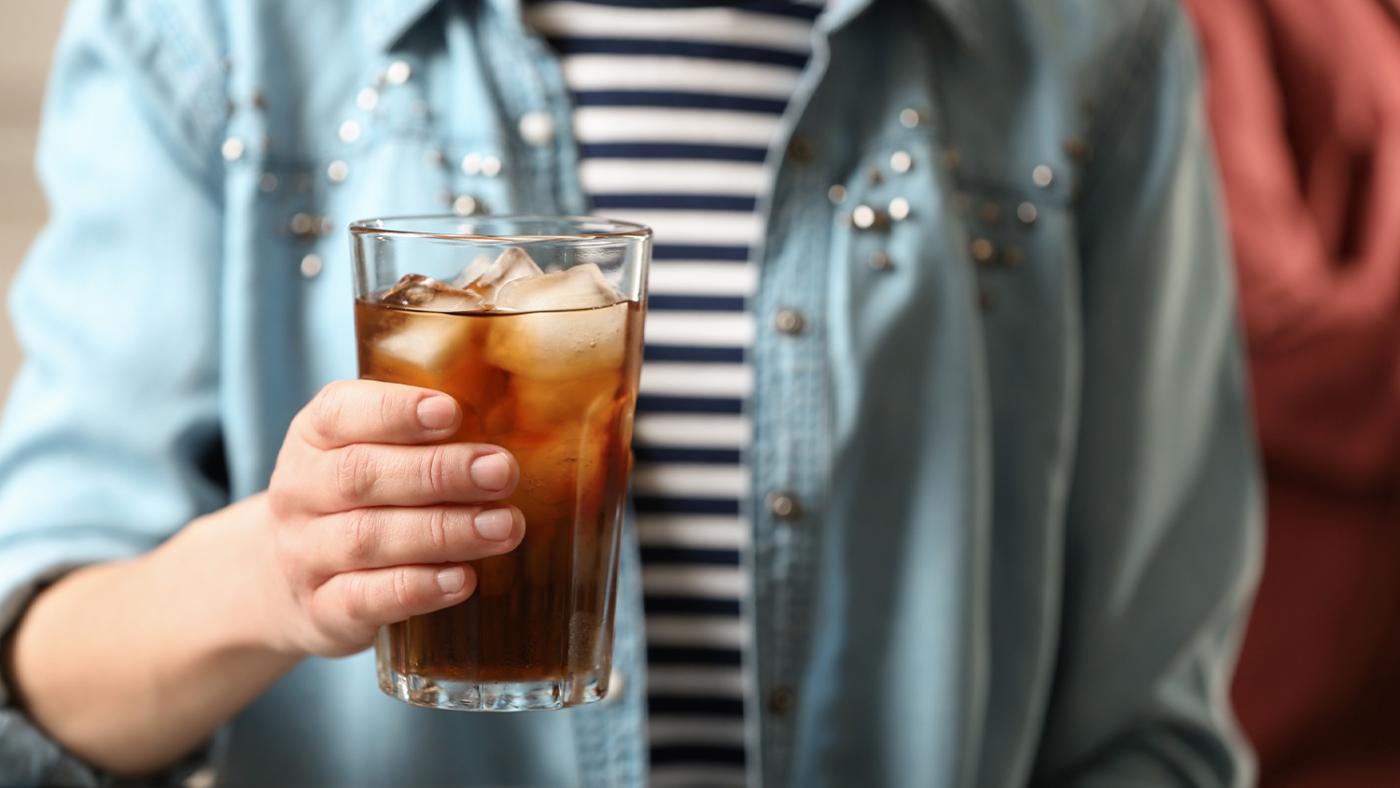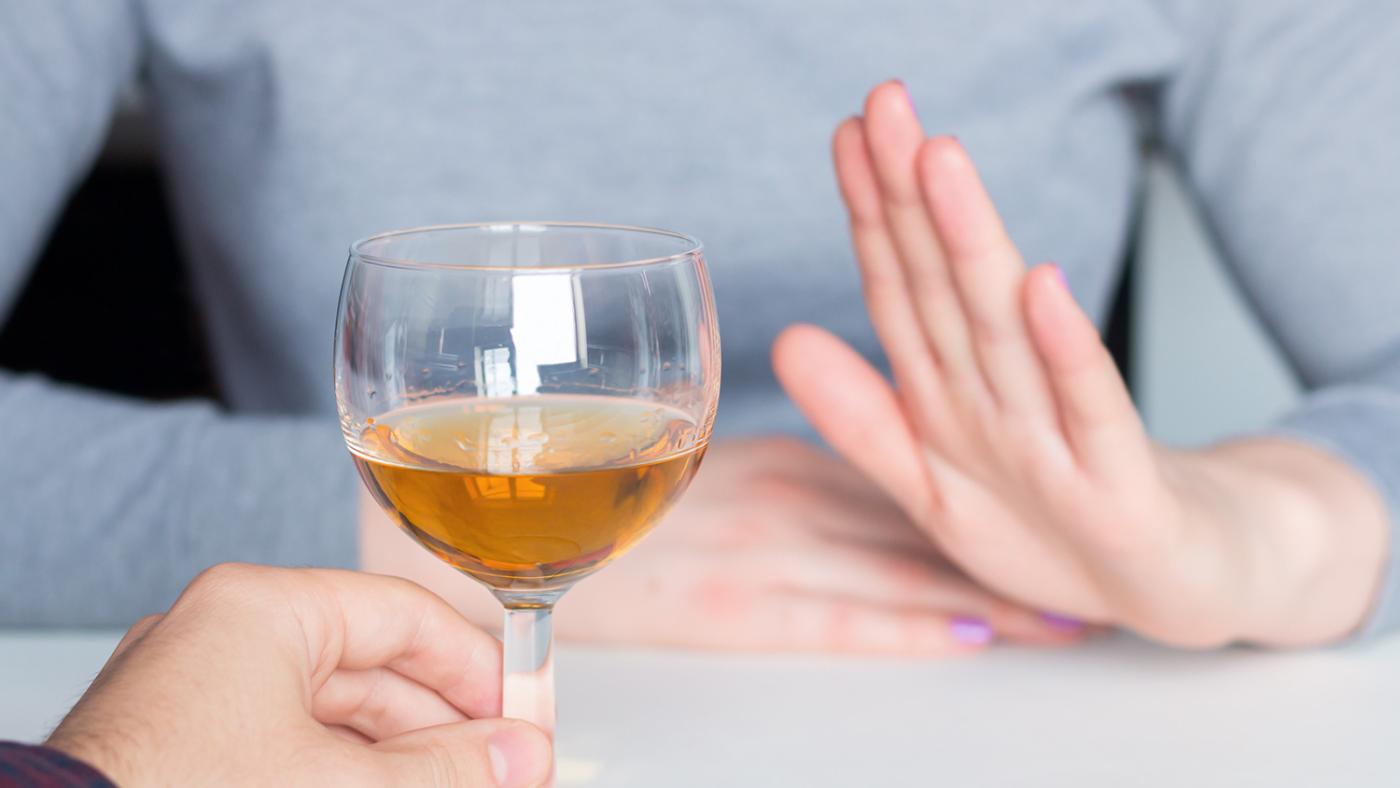Students who don't drink
‘I just don’t really like the taste of alcohol’

Students are known for partying a lot and drinking lots of alcohol. The fact that everyone understands that you don't mean Coke or water when you ask someone to go out for a drink shows the extent to which the consumption of alcohol has been normalised. According to Trimbos Institute, which monitors the consumption of alcohol in the Netherlands, 94 percent of university students consume alcohol and only 6 percent do not. Ploni (20), a second-year Sociology student at UU, is one of them. Her decision not to drink alcohol was met with resistance even before she started her Bachelor's. “Everyone said that I would give in, that I wouldn't be able to stick to my decision at university. This only made me more stubborn: when people tell me to do something I don't want to do, that's when I get even more determined."
Michelle van der Horst, from Trimbos Institute, agrees that the idea that alcohol is part of a student's life starts even before one becomes a student. “Almost everyone has had some experience with alcohol before university, which makes it easier to start drinking once you're actually there. There’s also the idea that university is supposed to be the time of your life and alcohol is just part of the package. Why would you deprive yourself of that? People like to conform to standards, especially as a fresher. You don’t want to be the odd one out."
Marlene (20), a second-year History student, also realised that she would be different from everyone else when she decided to stop drinking. “It's customary to have a beer when the committee of my study association has a meeting. The first time I declined, people didn’t ask anything but, after a few times, they started to notice. People asked me if I had stopped drinking altogether or just on occasion. It made me feel like I had to explain myself. But no one ever asks anyone why they do drink alcohol."
There are a million reasons not to drink. Ploni simply doesn’t like the taste of alcohol. She is not interested in its effects, either. "That's why I didn't see the point of drinking.” But not everyone seems to be satisfied with that answer. "The moment people notice you don't drink, they always ask you why. As if I should have a good reason not to. Usually, I just tell them that I don’t want to. I don’t think that’s something I have to account for.”
Marlene also stopped drinking because of the effects. “I wasn’t a heavy drinker to begin with, I really didn’t like the taste of it, and I don’t tolerate alcohol all that well. Alcohol tends to kick in very quickly on me and I don't like that very much. Last Christmas, a friend of mine threw a dinner party to celebrate her 21st birthday and people were drinking a lot of alcohol. When I saw my friends gulping a bottle of wine per person, I thought: 'This isn’t normal.' That's when I got curious about what quitting alcohol altogether would feel like, so on New Year’s Eve I symbolically had my last glass.”
These stories sound pretty familiar to Van der Horst, from the Trimbos Institute. “Most students who choose not to drink do so because they don't like what alcohol does to them. There are also students who can’t drink or refrain from drinking because alcohol can interact with the medication they take. Many students who stop drinking report positive effects, such as being able to sleep better and perform better after a party. Health is another common reason not to drink: some students stop drinking because they're concerned about sports performance and physical health. It's better not to drink."
Different prompts can motivate students to stop drinking. “Dry January is a popular way to find out what it’s like not to drink. We're also researching the effects of the 'I pass' initiative, in which people decide for themselves which month they’re going to stop drinking. We've notice that students often wonder why they are drinking and how things could be different.”
For Marlene, the experience of going sober has been mostly positive, though there are social disadvantages. “I am really pleased. I spend less money, I don’t have to deal with hangovers, and I don't mind not consuming alcohol when I go out. I’m there for the music and fun. The only annoying thing is having to explain why I don't drink alcohol every time I meet new people. People also tend to feel a little bit attacked as if I thought they should stop drinking too. Others tell me that it’s an accomplishment, that it's something they wouldn't be able to do themselves. I am aware that students who don’t drink can have a hard time, like those who are part of certain student associations. So, I’m lucky. As a general rule, my friends are cool about it.”
Still, Marlene underscores that it can be tough to be the only sober person at a party. “I'm often the only one who can still think and act normally by the end of the night, which can be a bit confronting, but I also think that everyone is responsible for themselves. I go home when I want to go home, I don’t stay until the end to make sure that everyone will get home okay. If I did, I would always have to stay until the end of the night, and that’s not right.”
Ploni can relate. “It’s not that I feel responsible for people because they drink but, in general, I like it when my friends and I keep an eye on each other. I don’t have a problem with people getting drunk around me, that’s their own choice. I am just annoyed when people have an opinion about my choices, especially the people who are closest to me. People tell me that we have to try everything in life at least once. But drinking has no added value for me. Friends and family members who enjoy drinking really don't get it. But I don't mind, they don't have to get it. Their most common argument is that it's fun. Sometimes I notice that they don't find me very sociable when I don't drink. They don’t say it to my face but, when they ask why I am not having a glass, it's clear that they would prefer you to drink with them. But I don't need a drink to have a good time."

“Peer pressure plays a big part when it comes to alcohol consumption,” explains Van der Horst. "That is often hard to recognise because it’s much more subtle than we assume. Many people think that they're not exerting peer pressure because they're not forcing anyone to drink. But that’s not the point. Imagine you're at UIT and your mentor asks everyone: 'Who’s up for a beer?’ At that moment, you don’t want to be the only one who says no. That's why Trimbos Institute and Jellinek have joined forces to train mentors so that the question becomes 'What would you like to drink?' instead of 'Who wants some beer?’ We also emphasise the importance of people who set an example by not drinking, especially if you're part of the board in a study or student association. By doing so, you normalise the perception that not drinking is perfectly fine as well."
Luckily, as a non-drinker, you can also have a positive effect on the group's norms, emphasises Marlene. "When people notice that I don't drink, sometimes there are people who say that it's actually not very convenient for them to drink that night either, because of an exam the next day or something like that." Ploni likes it when there are more people in the group who do not drink. "There were several students who didn't drink on a study trip. Nobody asked them why and I really liked that. It is what it is. I also have friends who say that they tend to skip alcohol more often when I'm around and they have just as much fun. They realise that it's not the alcohol that makes the outing fun.”
Ploni would like to stress to first-year students that the choice is theirs and not anyone else’s. "Do what you want and don't feel forced by others to do anything else." Marlene too would like to encourage students who don't drink. "You can do it! It's easier in some groups than in others but doing things against your will won't do you any good. Find people who accept you for who you are and drinkers who will support your choice."
Van der Horst has tips for future students as well. "Have a few reasons ready for when people ask you why you're not drinking. Then ask them the same question back: 'Why are you drinking?' It's not a competition or discussion, it's just a way to engage in an equal conversation."